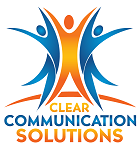
A few weeks ago, I attended a powerful, inspiring, and motivating panel conversation hosted by the True Colors Company titled: Coping in America: How to be a Minority in Corporate Culture.
When I first saw the event come across my desk, it honestly did not jump out at me because I don’t lead with the language that one has to cope or learn strategies on how to be a minority in corporate culture. In fact, the title irritated me so much I felt I just had to be in the room.
I was curious. Curious to hear how the conversation would be led and the types of focal points that would come out of a discussion prefaced this way.
I must tell you. I was pleasantly surprised and wonderfully impressed.
As I arrived at the Alston and Byrd the law firm where the panel was held, I began to network prior to the event. I really wanted to know what drew people to the conversation in the same way I was drawn. Were they also wondering what the outcome would be?
In those conversations, I learned that many people had unresolved grievances. They were there to share, to release, and to realize that they were not alone in having negative race-related corporate experiences. Others were there to hear the panelists’ stories and learn if and how they faced adversity.
Me. I was there for my current and future clients. I was there to hear the stories of others, but also to hear the strategies the panelists used to achieve their corporate success and the mindsets they had to develop to get there.
The event was beautifully organized and moderated by Jamil Jude—Artistic Director succeeding Kenny Leon from the True Colors Company. Each panelist shared their story, and the audience got a chance to ask written questions. As you could imagine, there were more questions than time available, but the ones that were asked were practical and answered honestly. I am so glad I went.
Our prestigious panelists included: Kim Adams, Diversity and Inclusion Consultant; Alina Lee, Attorney, Southern Company Gas (and We Love BuHi Board Chair); Bill Hawthorne, Chief Equity Officer, City of Atlanta-Office of Equity, Diversity, and Inclusion; and Nzinga Shaw, Chief Diversity & Inclusion Officer, Atlanta Hawks who was actually unable to join us that day.
Personal/Professional Development – The Secret Tools They Are Using That You’re Not.
While many questions focused on how to handle slights, whether EEOC was a viable resource, whether to use the internal hotline and how to handle bad bosses, I was more interested in learning what got the panelists to the state where they currently were. It became evident but not apparent that the tools used fell into the following categories I outlined below.
Mentorship and Coaching
For example, when asked if she invested in a coach, Kim shared that she was assigned one and that her coach was outside of her race and gender. I found this to be outstanding.
When individuals are designated as high potentials or fall into the management spotlight, they often get the luxury of having a coach assigned to them. Sometimes they may not see it as a luxury, but everyone knows it’s the fastest way to maximize individual and human potential.
There are many brilliant people doing great work in companies who will never be assigned to or experience a coach. This is the truth. They will never catch the eye of upper leadership and there are several reasons that you have no control over, but here are 7 that you do.
- You do not know and cannot clearly articulate how you bring value to the team.
- You only enjoy being a producer. No, you do not get to manage people if you don’t like people. Just No.
- You don’t know how to network, socialize and can’t wait for the day to be over so you can go home.
- You are waiting for someone to recognize you and promote you. In an ideal world, this is great, but you can’t accept the fact that your manager is busy, and you need to be your biggest cheerleader and advocate.
- You only want more money and benefits- not the real responsibility that comes with it. In this case, I suggest you find a side hustle and a hobby because you don’t understand how your business or company works. You need to understand the behaviors that will be rewarded in order to move up.
- You aren’t having the compensation conversation. You just achieved a major milestone, but you didn’t communicate about the impact it made and what it demonstrates in your new-found skillset. Arm yourself with data, and then have a purposeful conversation.
- You spend 5 minutes on your performance review but fail to demonstrate how or why you deserve a raise.
My Take: My suggestion for you is to do what I did. Get your own coach. I have been fortunate to have my company, Clear Communication Solutions invest in several diverse coaches for me. It is what has catapulted my professional and personal success. I am very proud of my clients who do the same because they know they have more to offer and give and their growth can never be taken away.
Build Connections Outside of Work
As the first black man to break many barriers in his company, Bill had to learn how to be more relatable. Many times, he was the only black person in the room and as I heard him speak, he talked about a conversation he had with his colleagues on the tennis court. It was just two seconds that he said that, but I caught it.
Because he was able to connect through a sport and activity he loved, this allowed the people around him to see him for more than just a “work” individual. It made building connections easier because others could see they had a lot more in common and they were able to find common ground.
Bill made it up to the top echelons in leadership at Macy’s so a lot of his perspective shared was from the position of being on the “inside.” He mentioned Employee Resource Groups (ERGs). While he noted that there are pros and cons to them, he is a very strong proponent of them. Here’s why:
- ERGs are a community resource. They can serve for identifying mentors and sponsors and are excellent for developing internal leadership and upward trajectory.
- ERGs are used for recruiting and onboarding.
- ERGs give insights into employee engagement and concerns among various populations and can provide a safe space.
Bill, Kim, and Alina shared that the cons to ERGs are that they can be limiting and can cause strife among other affinity groups that feel recognition is required. In situations like these, it’s good to make sure that your requests are aligned to the company’s values. You will increase the chance of having your request heard. An ERG can also cause someone who is new to feel uncomfortable if their manager or colleagues are in the room if they share a grievance.
Enhance your Cultural IQ
When Alina started talking about her experience with this, I wanted to jump around the room and start salsa dancing. Alina stressed the importance of taking the initiative to enhance your cultural IQ. Doing her own personal inventory at a conference, she was asked to perform an exercise.
- Take an inventory of 10 people in your circle.
- Ask yourself, why do you like them?
- How are they diverse in race, gender, and age?
What she learned was that her circle was made up of all Asian females. It struck her right then and there that if she wanted to be a proponent for diversity in the workplace, it needed to start with her.
Bill also shared a story that I categorize in both mentoring and cultural IQ categories. As he was running a diverse workforce, he engaged in a reverse-mentee relationship. This means that although he was higher in corporate hierarchy, the younger executive was more knowledgeable in certain areas than he was. His reverse-mentee relationship was with a Muslim executive. The first order of business they had was to visit a Mosque. Next, he was taken to the best food truck in New York for halal food. It turned out to be his favorite eating spot and this experience allowed him to continue to be open to learning as opposed to being closed-minded.
My take: This is serious emotional intelligence right here folks. Serious! Now, there are some of you who will not want to do this. That is fine. These winning strategies and tips won’t resonate with everyone. But, for those of you, individuals and leaders out there, who have a burning desire to inspire others and be rewarded with improved social relationships, enjoy!
Alina, Kim, and Bill all shared that intentionally seeking to diversify their network and experiences have not only led them to increase their cultural IQs, but allowed them to become better leaders.
Do You Need More Proof? It’s All about Communication.
The common thread in all the experiences fell into two main areas: Interpersonal skills and Intrapersonal skills. These are the building blocks of Emotional Intelligence.Intrapersonal skills focus on how you get along with yourself. You may hire a coach to enhance self-awareness, build your confidence and learn more about your strengths. You may read books like Bill did that highlights his goal for achievement. You may extend grace like Kim does towards those who are coming from a place of hate.
Interpersonal skills focus on how you get along with others. You may intentionally diversify your network like Alina, improve your language and perspective about others like Bill, and acknowledge them for who they are by making time to care about what they care about among others.
One thing is certain. Each behavior, mindset, thought, and successful result all have roots in effective communication and interpersonal and intrapersonal skills.
So, I ask you.
Who is helping you improve your communication skills? Who is helping you improve your emotional intelligence?
Too many people are sitting around waiting for someone to develop them rather than take the initiative to develop themselves. You will not get ahead without it. Period.
I went to this event and boy am I glad I did because I believe in abundant conversations and leading from a place of strength. Know your strengths. Know the politics. Every company has politics and you need to know what the politics and culture is at your company. You need tools to become resilient, and to expand your thinking and perspective. You need to know all your options because alternative choices are available to you.
If you are looking to advance to the next level in your career or business through Executive Coaching, send me a message to get the conversation started.
